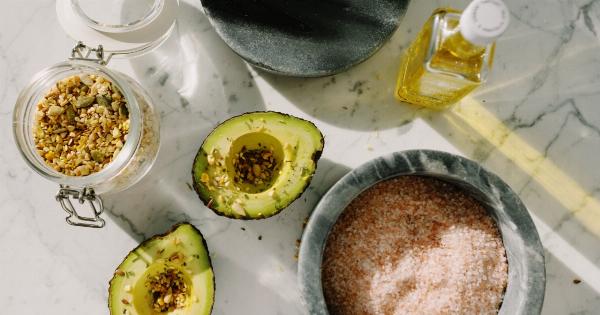Avocado, also known as Alligator Pear, is a highly nutritious fruit that originated in South Central Mexico. It has gained tremendous popularity in recent years due to its unique taste, creamy texture, and numerous health benefits.
Whether you enjoy it on toast, in salads, or as guacamole, avocados are a versatile ingredient that can enhance various dishes.
1. History and Origin
The history of avocados dates back thousands of years. They were first cultivated in Mesoamerica and were a significant part of the Aztec civilization’s diet.
Avocados made their way to Europe and the United States during the 17th century through Spanish explorers.
2. Varieties of Avocado
Avocados come in several different varieties, each with its own unique characteristics. The most common types include Hass, Fuerte, Reed, Gwen, and Bacon.
Hass avocados are the most popular and recognizable variety, known for their rough, dark skin and buttery taste.
3. Nutritional Value
Avocados are packed with essential nutrients and healthy fats. They are an excellent source of monounsaturated fats, which are beneficial for heart health.
Avocados also contain high levels of vitamins K, C, E, and B6, as well as potassium, folate, and dietary fiber.
4. Health Benefits
Consuming avocados can provide numerous health benefits. Their high fiber content aids digestion and promotes a healthy gut. The monounsaturated fats in avocados can help reduce bad cholesterol levels, lowering the risk of heart disease.
Avocados also contain antioxidants that may have anti-inflammatory effects, benefiting overall health.
5. Culinary Uses
Avocados can be incorporated into a wide range of dishes. They can be mashed and spread on toast, blended into smoothies, sliced on top of salads, or used as a base for creamy sauces. Of course, guacamole is a classic and delicious way to enjoy avocados.
Its creamy texture and tangy flavor complement various Mexican and Tex-Mex dishes.
6. Selecting and Ripening Avocados
When selecting avocados, look for ones that are slightly soft when gently squeezed. Avoid avocados that are mushy or have brown spots. If you need to ripen avocados faster, place them in a brown paper bag with a banana or apple.
These fruits release ethylene gas, which accelerates the ripening process.
7. Storing Avocados
To extend the shelf life of avocados, store them at room temperature until they ripen. Once avocados are ripe, you can transfer them to the refrigerator to slow down further ripening.
If you only need half an avocado, store the remaining half with the pit intact and cover it tightly with plastic wrap.
8. Avocado and Weight Loss
Despite their high-fat content, avocados can be beneficial for weight loss. The monounsaturated fats in avocados help provide a feeling of fullness, reducing the overall appetite.
Additionally, the fiber content in avocados helps regulate blood sugar levels and prevent overeating.
9. Avocado Oil
Avocado oil is extracted from the flesh of the fruit and is widely used for cooking and skincare. It has a high smoke point, making it suitable for various cooking methods such as frying and grilling.
Avocado oil is also rich in antioxidants and vitamins, making it a popular ingredient in natural skincare products.
10. Fun Facts About Avocados
Here are some interesting facts about avocados:.
– Avocados are technically berries, classified as single-seeded fleshy fruits. – The word “avocado” comes from the Nahuatl language, which means testicle. – Avocados are a natural source of potassium, containing more than bananas. – The largest avocado on record weighed over 5 pounds. – Avocado trees can live up to 400 years.


























